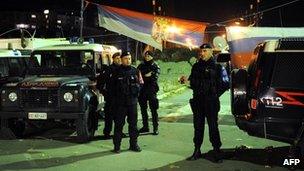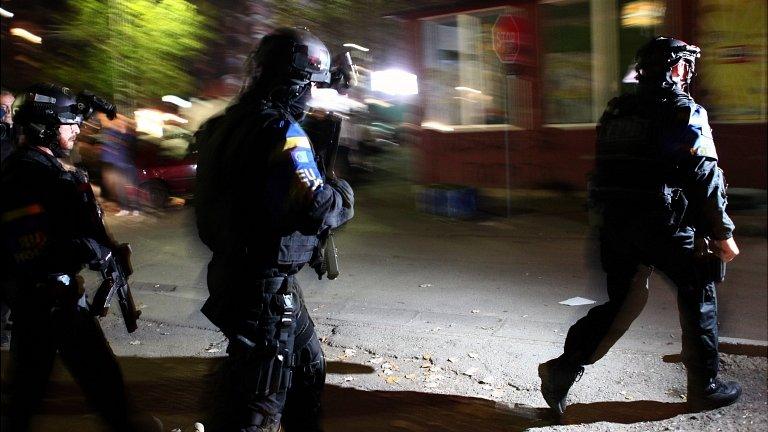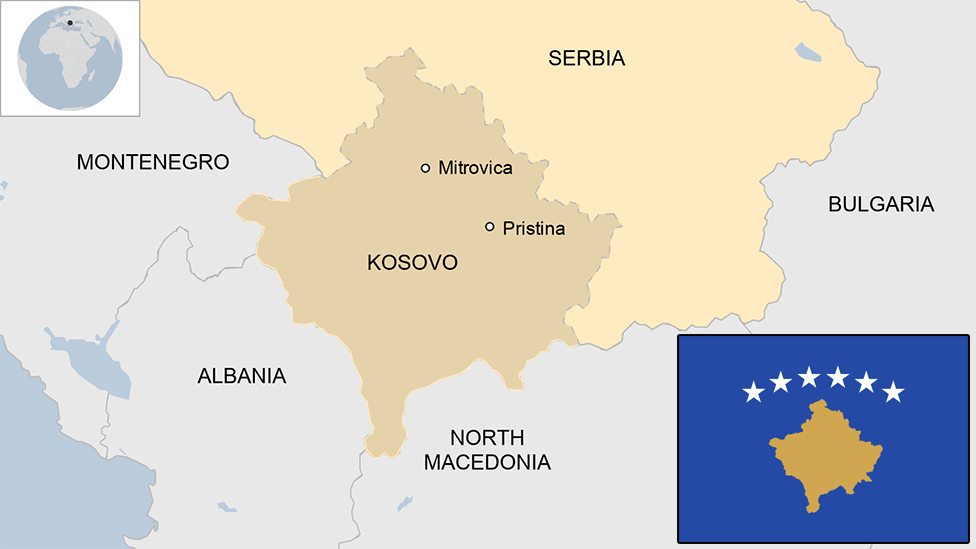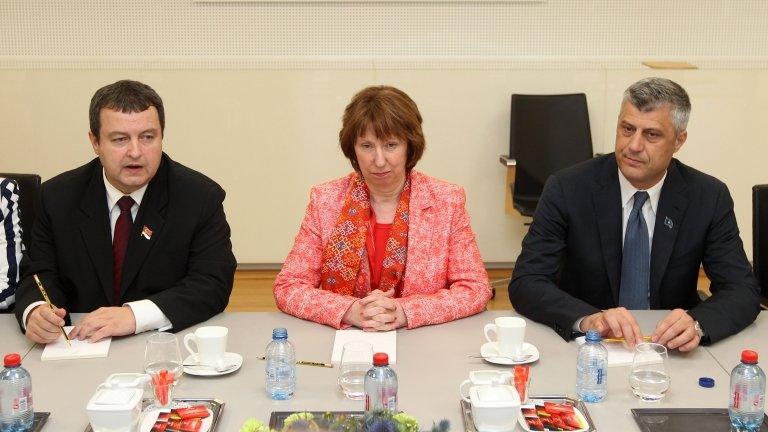Kosovo votes amid violence and ethnic Serb boycott fear
- Published
Guy De Launey reports from Mitrovica
Outbreaks of violence have marred key elections in Kosovo.
Masked men forced the early closure of the main polling centre in an ethnically mixed Kosovan town during the municipal elections.
They burst into the building in north Mitrovica, setting off tear gas canisters and smashing ballot boxes.
Ethnic Serbs were encouraged to vote for the first time but as polls closed on Sunday evening there were concerns of a low turnout.
Credibility issue
The Organisation for Security and Co-operation in Europe (OSCE) had been providing technical assistance in the election, but following the attack in north Mitrovica it withdrew its staff from all three polling stations in the area, bringing polling there to an end.

Italian carabinieri helped keep the peace
A candidate for mayor of Mitrovica, Krstimir Pantic, described what happened when the masked men stormed the polling station: "They started smashing ballot boxes, throwing ballot papers around, insulting members of the election commission, and one older woman was seriously injured because one of the attackers hit her with a chair.
"We heard that another woman had also been injured, her leg was broken, and this shows the bestiality and arrogance of the attackers."
The governments of both Serbia and Kosovo had promoted a strong turnout in the elections, but correspondents say it was extremely quiet at polling stations.
Some Kosovar Serbs were concerned that if they voted it would legitimise the independent state of Kosovo. Kosovo unilaterally declared independence from Serbia in 2008.
The move had the support of Kosovo's majority Albanian population, but not the small Serbian minority.
For the first time, the government in Belgrade put pressure on Kosovo's Serb population to take part in the municipal elections.
The change was down to a new agreement between Serbia and Kosovo to normalise relations, as Serbia seeks membership of the European Union.
Polling stations opened at 06:00 GMT and closed at 18:00 GMT.
The BBC's Guy De Launey, in Mitrovica, says the government in Belgrade has considerable influence over ethnic Serbs in north Kosovo, many of whom work in Serbian public sector jobs.
But our correspondent, who was at a polling station in north Mitrovica, says the only people going in and out appeared to be ethnic Albanians.
If there is no significant turnout among Serbs, our correspondent says, the election will have little credibility - and that would be a blow to the Serbian government, which has staked a lot on the normalisation of relations with Kosovo.
Calls for independence from ethnic Albanians in Kosovo after the break-up of the former Yugoslavia led Serbia to stage a violent crackdown in the territory, which was bought to an end by a Nato military intervention in 1999.
Until it declared independence in 2008, Kosovo was administered by the United Nations.
- Published4 November 2013

- Published28 June 2023

- Published19 April 2013

- Published2 September 2014